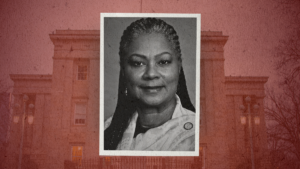Black Maternal Health Week takes place every year from April 11 –17, and centers discussions about the increased health risks pregnant Black women face seeking medical care.
For far too many Black mothers, families and individuals, complications related to pregnancy, childbirth, and postpartum can lead to devastating health outcomes — including hundreds of deaths each year.
In the United States, Black women are nearly three times more likely to die from pregnancy-related causes than white women.
For years, studies have shown racial bias in pain and treatment assessments conducted by doctors and medical professionals when caring for Black patients.
Too often, this racial bias results in inadequate treatment for a patient’s pain or condition – especially for Black women during pregnancy.
According to a 2016 study, half of 400-plus resident doctors and medical students surveyed held false and unfounded beliefs about the pain threshold of Black people, beliefs that often led them to “make less accurate treatment recommendations.”
Several leaders, like North Carolina’s U.S. Rep. Alma Adams, are leading the way in proposing legislation that will bring awareness to this crisis and improve Black maternal health care.
Through the proposed Black Maternal Health Momnibus Act, a series of 12 bills aims to address racial and ethnic disparities in maternal and mental health outcomes through critical investments in medical care, housing, transportation, and nutrition.
“It’s a comprehensive approach posed to the crisis. We’ve never tried it before,” Adams stated. “It doesn’t matter what your socioeconomic status is, how much money you have, how much insurance you have, it impacts anyone”.





